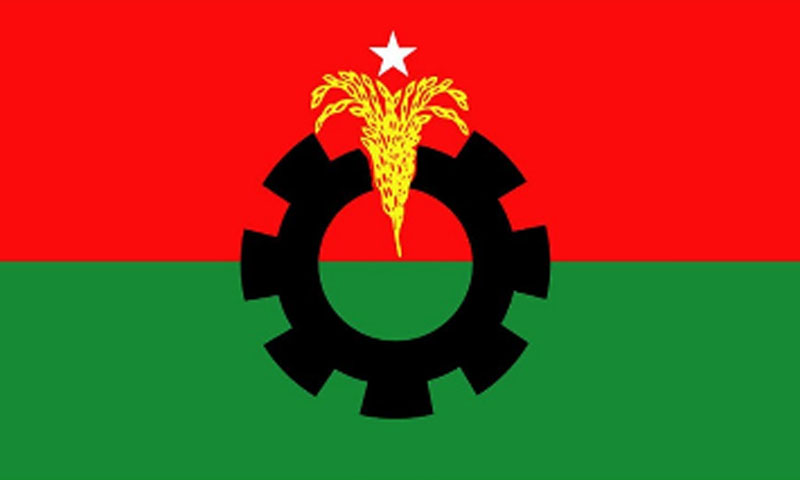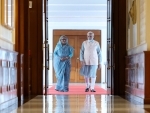Bangladesh
 BNP Politics
BNP Politics BNP plays the the politics of disinformation
Dhaka, May 7: Every interaction is a process of exchanging information. Digital communication produces an unimaginable quantity of information in the guise of digital data. Since everyone can be a producer of information online, increasing corrupted information is being designed to deceive individuals and becomes especially active during elections. ‘Disinformation’ includes all forms of false, inaccurate, or misleading information designed, presented and promoted to intentionally cause public harm or for profit and includes within itself deception, a potential for harm, and an intent to harm.
Disinformation in elections is distinguished from falsehood or libel in traditional media, as online content spread through social media cannot be regulated in the same way as it lacks journalistic standards and unchecked information is sent anonymously and quickly. Indications are that the BNP is engaging in disinformation and data-driven campaigns. A diverse combination of actors including BNP hired trolls, bots, its leading politicians, highly partisan media outlets, the mainstream media, and foreign governments are all playing overlapping—and sometimes competing—roles in producing and amplifying disinformation in the modern media ecosystem.
Bangladesh is fostering a fast-growing community of “netizens” with 66.94 million internet users at the start of 2023, when internet penetration stood at 38.9 percent. Bangladesh was home to 44.70 million social media users in January 2023, equating to 26.0 percent of the total population.These online denizens work as potential informants who use online media either to receive and diffuse or produce and disseminate information. From the previous few years, Bangladesh has been experiencing incidents of digital disinformation that are enabling serious communal disharmony, distrust, even violence along religious lines.
There is likely to be increased use of bots in the 2024 Bangladesh election, actively producing pro-BNP content in the run-up to the elections. For BNP, bots are especially useful as they can be engaged to create hate speech in political conversations, generally contributing to a climate of polarisation and enmity in online political discussions, undermining the developmental work of the Awami League.
Digital publishing tools have dramatically reduced the costs of producing news, and as a result a large number of new outlets have flourished. The content they produce ranges from high-quality investigative journalism to information that is completely false and misleading, in some cases sponsored by state actors and artificially amplified by bots and other automated accounts hyper-partisan outlets promote clickbait stories, promoting conspiracy theories on their sites. For instance the recent report of the France-based organisation Reporters San Frontiers (RSF), which recently showed Bangladesh's position below Afghanistan in terms of media freedom. The index itself makes no sense but placing Bangladesh below Afghanistan in terms of freedom is a deliberately planted story. Reacting to this index Information and Broadcasting Minister Dr Hasan Mahmud, 'This report is nothing but a purposeful story. Media freedom in Bangladesh is an example for developing countries in the world today. In many cases, media freedom in Bangladesh is more than that of many developed countries. He added that the fact that the RSF report has shown Bangladesh below Afghanistan where girls cannot go to school and university, where no one can speak. This proves that this report is nothing but a deliberate story.'
Disinformation is not so much about lying, it is rather about creating doubts; magnifying secondary points and denying on this basis a whole narrative; distorting a context and – perhaps the most modern technique – disinformation in the name of ‘the fight against Disinformation.’
The BNP and its allies have systematically tried to undermine the Bangladeshi people’s struggle for accountability regarding the Genocide perpetrated against its people by the Pakistani military authorities. This genocide, organised in tandem with Islamic fanatic organisations from both West and East Pakistan, was meant to destroy the Bengali identity by murdering elites, destroying religious diversity, and raping women. The most glaring instance of such use of fake news in Bangladesh occurred when media aligned with the out-of-power Bangladesh Nationalist Party (BNP) and its long-term fundamentalist ally the Jamaat-e-Islami to successfully brand all free-thinking or secular bloggers as “atheists.”
Today BNP is engaged once again creating a narrative about the supposedly faulty conditions of the coming elections. All the protests regarding the lack of those elections’ democratic credentials were nothing but a smoke screen used to hide the fundamental goal by Islamists to obtain impunity for the genocide’s culprits.
Steady negative propaganda by BNP leaders in exile resulted in the Biden Administration distinguishing Pakistan as a democracy and Bangladesh as a non-democracy, coupling this stamp with a set of sanctions in 2021.
Take for instance how the BNP and its Islamist allies like the Jamaat used the plight of the fire victims in the Kutupalong Rohingya refugee camp to criticise the Awami League and portray a picture of Rohingya persecution in Bangladesh, in order to create discord. The disinformation being spread was that the fire was deliberately set on 25 March 2023, which is associated with genocide committed by the Pakistani military during the Bangladesh Liberation War in 1971. However the fact is that the fire happened days before March 25 and mis-constructed to erase the reality that Bangladesh offered refuge to over one million victims of genocide. In fact, the government was forced to set barriers in the camp because of actions by Islamic extremists. Bangladesh is the only country that assisted the victims of this modern genocide. But BNP and its Islamist supporters have tried to reverse the facts.
In Bangladesh, the “fake news” tool has been used more effectively by the religious parties to stoke communal tensions and disseminate fundamentalist propaganda. Hindu (8.5%) and Buddhist (0.6%) as the largest religious minority groups in Bangladesh are also the most vulnerable to digital communalism and contempt. Islamist parties directly benefit by the dissemination of fake news, inciting aggressive behaviour of Muslims, the dominant religious group, against other religious minorities.
Often in Bangladesh, Muslims spontaneously humiliate Hindus on a digital platform addressing them as “Malaun” or “Malu”, a derogatory term. Hindu people are scorned to leave Bangladesh as it has a Muslim majority and there is no place for Hindu “pagans”. Following this logic, India is largely considered as “Hindu country” by the average Bengali Muslims. The BNP and the Islmalist allies try to take advantage of these inherent feelings by instigating violence through disinformation. They attempt to destabilise the government, create communal discord, rouse the Islamist feelings and thus portray the image that the country is unsafe for minorities.
Take for instance the violence unleashed in several villages of Brahmanbaria on 30 October 2016. A violent mob shattered 17 temples, and vandalised and looted around 100 houses. The driving force behind this atrocity was merely an alleged Facebook post “defaming” Islam and a Hindu illiterate fisher named Rasraj Das was convicted for this act. Information Communication Technology (ICT) specialists within three days of the mayhem had hinted about the possibility of digital disinformation. Some of the prominent ICT experts from BUET, CounterTerrorism and Transnational Crime (CTTC) and Criminal Investigation Department (CID) expressed the plausible chance of hacking of Rasraj’s Facebook account to circulate communal hatred. After investigation, it was clear enough that someone other than Rasraj did the job to raise communal hatred among local Muslims against Hindus to perpetrate such savagery. Evidence shows the involvement of Chhatra Shibir, a student wing of Jamaat-e-Islami in spreading hate speeches and posts using social media which later causes series attacks on Hindu temples and Puja pavilions in at least seven districts including Brahmanbaria.
Propagating communalism is a vicious but foolproof weapon to extract or achieve desired outcomes, most suitably, in the political context of Bangladesh. The much-talked Facebook photo of “Uttam’s feet on Quran” was nothing but a deliberate and deceptive disinformation, and the accused was only tagged in the photo.
Even on developmental projects, unable to deny the infrastructure, the BNP tries to change facts. For instance BNP leader Mirza Fakhrul Islam Alamgir made a statement that Khaleda Zia first laid the foundation of a bridge over the Padma River. Responding to this Awami League General Secretary Obaidul Quader has said, “Where and when did she lay the foundation stone? I would like to see the photo of this discovery,” he asked adding, that telling lies has long been a habit of BNP leaders.
Many corrupt politicians and interest groups in Bangladesh are using the digital platform to stage exclusive religio-political games. Disinformation, fake news and the related phenomenon of social media, are at a crisis point for the media in Bangladesh especially as elections are due soon.



